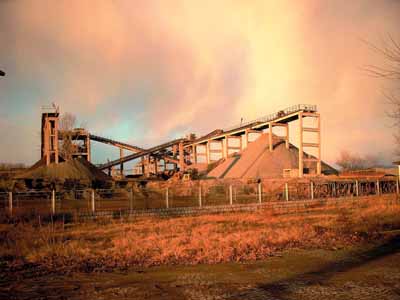Aggregates levy
Aggregates are materials that are frequently used in construction as a means of stabilising and reinforcement, typically in drainage applications and as base material under foundations and roads.
The aggregates levy is a UK tax on the commercial exploitation of certain types of aggregate. It was introduced to encourage the recycling of aggregate and is often a consideration in infrastructure and other civil engineering projects as well as the quarrying industry. In particular it applies to sand, gravel and rock that has been either:
- Dug from the ground.
- Dredged from the sea.
- Imported.
Businesses must register with HMRC if they exploit aggregate in the UK and must report the quantity of aggregate that has been produced or sold each quarter.
A flat tax of £2 per tonne of sand, gravel or rock has been applied at a frozen level since 2009, on 1 April 2024 the rate increased to £2.03 per tonne, and thereafter it will be subject to annual Retail Price Index (RPI) increases. Less is charged on smaller amounts, e.g. £1 per half-tonne, with the same tax still applied if aggregates are imported.
Tax relief may be available for aggregates that are exported or used in certain industrial or agricultural processes, or if the material is not actually used as aggregate. Materials such as soil, vegetation and other organic matter are also exempt.
For further information visit Aggregates Levy: detailed information and Environmental taxes, reliefs and schemes for businesses .
On 14 November 2023 the Scottish Government introduced and new Bill entitled 'The Aggregates Tax and Devolved Taxes Administration (Scotland) Bill' which will replace the UK Aggregates Levy in Scotland, stage 3 of the Bills progress ended on 1 October 2024.
[edit] Related articles on Designing Buildings
Featured articles and news
Energy industry calls for urgent reform.
Heritage staff wellbeing at work survey.
A five minute introduction.
50th Golden anniversary ECA Edmundson apprentice award
Showcasing the very best electrotechnical and engineering services for half a century.
Welsh government consults on HRBs and reg changes
Seeking feedback on a new regulatory regime and a broad range of issues.
CIOB Client Guide (2nd edition) March 2025
Free download covering statutory dutyholder roles under the Building Safety Act and much more.
AI and automation in 3D modelling and spatial design
Can almost half of design development tasks be automated?
Minister quizzed, as responsibility transfers to MHCLG and BSR publishes new building control guidance.
UK environmental regulations reform 2025
Amid wider new approaches to ensure regulators and regulation support growth.
The maintenance challenge of tenements.
BSRIA Statutory Compliance Inspection Checklist
BG80/2025 now significantly updated to include requirements related to important changes in legislation.
Shortlist for the 2025 Roofscape Design Awards
Talent and innovation showcase announcement from the trussed rafter industry.
OpenUSD possibilities: Look before you leap
Being ready for the OpenUSD solutions set to transform architecture and design.
Global Asbestos Awareness Week 2025
Highlighting the continuing threat to trades persons.
Retrofit of Buildings, a CIOB Technical Publication
Now available in Arabic and Chinese aswell as English.
The context, schemes, standards, roles and relevance of the Building Safety Act.
Retrofit 25 – What's Stopping Us?
Exhibition Opens at The Building Centre.
























